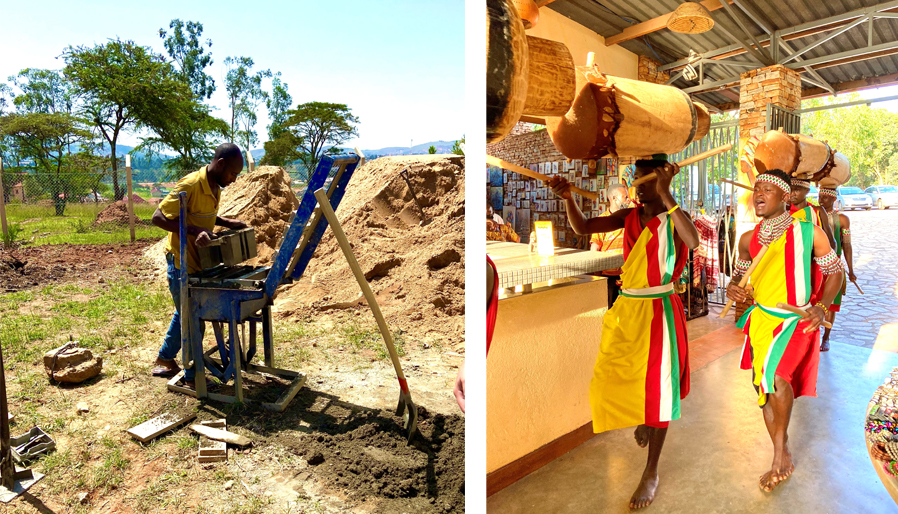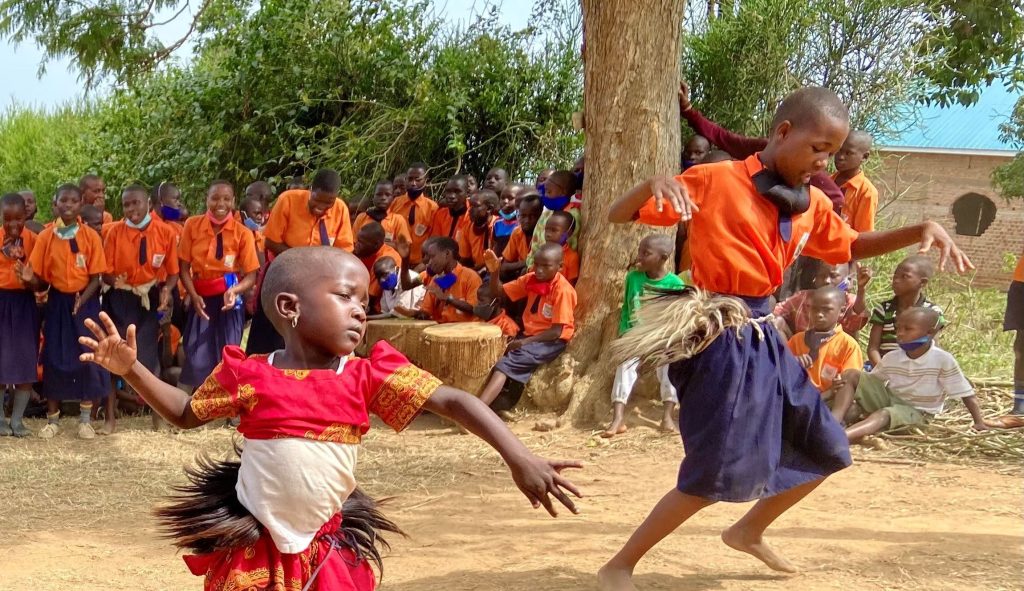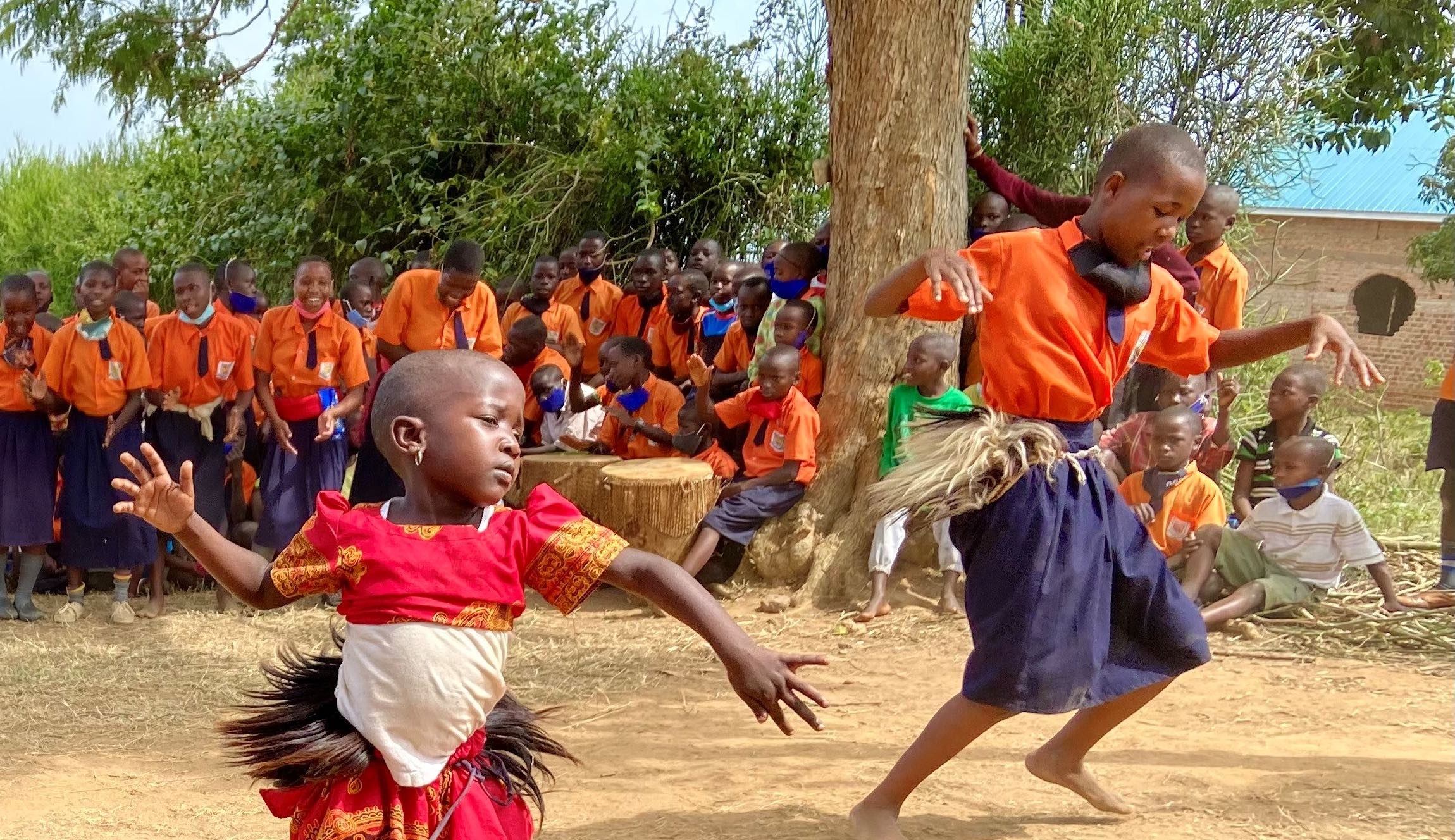by Kristin Srour, VP Social Purpose + Sustainability
Last month, I traveled to Uganda as a faculty advisor for University of Notre Dame’s Business on the Frontlines Program. We were tasked with designing an innovation hub in Uganda to support the future careers of Building Tomorrow Fellows.
There’s a strong culture of entrepreneurship across Uganda, with opportunity lurking at every corner. As we drove across the country, meeting with community members and innovation hubs, and experiencing the power of education at Building Tomorrow Academies, I was struck by the power of purpose that existed in every interaction, meeting and observation that will forever impact the counsel I offer to our Social Purpose clients.
1. Cultural Context is Imperative
In Uganda, there are 56 tribes. Each tribe has its own unique traditions, music and language. As we met with community members, I noted the differences from community to community. I saw the motivation, emotion and behavior that are shaped by cultural values that connect to and drive purpose. It came to life as communities rallied around income-generating ideas that would help families pay school fees for their children to go to school for the first time. It was evident in discussions about the detriment of early marriage that impacts not only young girls, but the community as a whole. And it showed me how powerful and critical cultural context is in the work I get to do to help clients create and express a social purpose.
2. Champions Matter
Herbert Murungi started Rural Environmental Sustainability Initiative (RESI), a social enterprise working with grassroots communities to create access to clean energy and educate rural people about climate change and natural stewardship. These are topics not well known or embraced in his community. Herbert located his organization on the main road in Lyantonde to bring visibility and awareness to climate issues facing his community. But he also saw that he could not be the lone voice in the community — so he focused on being a champion to the next generation. He wrote children’s books on climate change and protecting the environment. He worked with schools to bring the books to classrooms and helped learners plant trees around their school campuses. When I met with those students, they were well informed on climate change and their roles as stewards of the environment, and they now educate their families and community. It demonstrates the power of having internal and external champions to drive social impact at scale.
3. Community Needs Create Opportunity
Nearly a quarter of girls in Uganda drop out of school when they begin menstruation. Of those who remain in school, they are often absent in school during their menstrual cycle. These regular gaps in learning has significant consequences – including not being able to escape the cycle of poverty and early marriage. Lack of access to menstrual health care, sanitation and products, along with the stigma and shame surrounding menstruation are the reasons these girls are missing school. When we close the gap on the real need, we increase the opportunity for people like the girls I met. We met with two Building Tomorrow fellows who developed an organization to reduce stigma around menstruation and help girls make and sell reusable sanitary pads. Because of their work and identifying a community need, girls like the ones I met will be able to stay in school and thrive.
The problem solving, entrepreneurial spirit, and creativity I encountered showed me the power of resilience, and tangible ways to improve communities and create impact. When people are formally employed and earn a living wage, it is a pathway out of poverty. It’s a pathway to opportunity.


